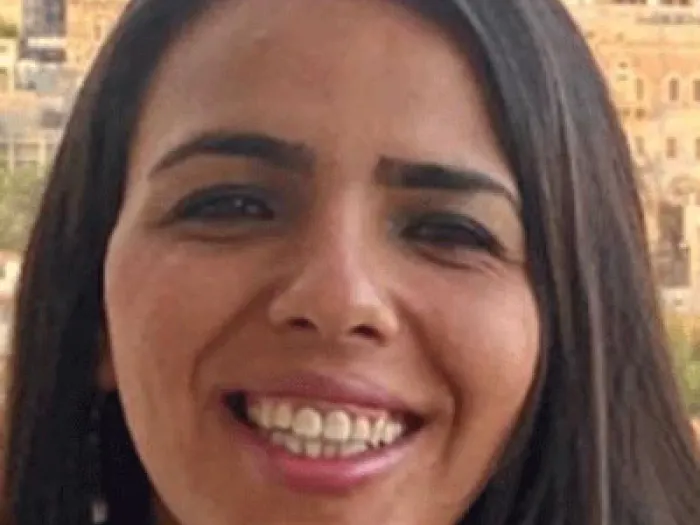Presbyterian Peace Fellowship hosts Lost and Found Virtual Peace Church service
Advent services are offered as a ‘sanctuary for those who may have felt isolated or disconnected from traditional places of worship’

LOUISVILLE — Presbyterian Peace Fellowship launched its initial “Lost and Found Virtual Peace Church” gathering on Sunday. The online offering, which is scheduled for each Sunday during Advent plus Dec. 29, featured Scripture, music, Communion, meditation and a thoughtful homily by the Rev. Dr. Laurie Lyter Bright, PPF’s executive director. Register for upcoming worship services here.
“Thank you for joining this experiment,” Lyter Bright told the 35 or so people who tuned in on Sunday. “It’s a work in progress.”
The Rev. Bill Davis, Senior Director of Theological Education Funds Development at the Presbyterian Foundation, offered up musical selections for Advent on both cello and guitar. Scripture lessons came from Job 3:1-10, Romans 12:9-16 and Luke 1:46-55.
“Our church is a sanctuary for those who may have felt isolated or disconnected from traditional places of worship, offering an opportunity to reconnect with God and each other,” Lost and Found Church states on its website. “We are deeply committed to fostering an inclusive Christian community where all people — regardless of their past experiences or identities — can find belonging.”
Marissa Gutierrez-Vicario led a mindfulness exercise by asking those gathered to find a piece of fruit and reflect on it. “Study the color and shape. Look at the lines and the contours,” Gutierrez-Vicario suggested. “Close your eyes and imagine where you think the fruit might have grown. Imagine feeling the same warm sun that piece of fruit felt.”
As they peeled the skin, worshipers were asked to notice how the smell changed. “Take a bite, and pay attention to how it tastes,” Gutierrez-Vicario said, then wondered: “How did it feel to eat a piece of fruit with intentionality in a space together?”
During her reflection, Lyter Bright opened with a poem by Warsan Shire which includes this stanza:
“i’ve been praying,
and these are what my prayers look like;
dear god
i come from two countries
one is thirsty
the other is on fire
both need water.”
Lyter Bright is starting Advent by reading Job “because Job gets it. He gets fear. He gets the way things fall apart. I don’t know a single peacemaker who isn’t feeling a level of despair” over the fighting and human suffering in places including Gaza, the West Bank, Syria, Sudan and the Democratic Republic of Congo, she said, places where “empire is stretching out and reaching in.”
“Like Job, like Mary, we are just here, lost and found, together in this not-yet space — not one in which the weary world is rejoicing, but just weary,” Lyter Bright said. “Some of us are weary of aspects of church life … Some of us feel ambivalent about church. Some of us feel good about church and are simply seeking something more.” Then she asked, “What do we do in our weariness and our waiting?”
One thing we can do is lament. “It’s not a traditional Advent practice, but Scripture gives us many models for our soul to cry out when we need to,” she said. “The expectation is God is there, and the community is listening and able to hear.”
We can also hold each other, committing to create “pockets of community where it is absolutely fine to not be fine right now,” Lyter Bright said. “Our lamentations are never solos. Lamentations are a chorus, and a very long one — ancient and future and now.”
What remains is the work of peacemaking, she said. “It reminds us that the story of humanity is so much bigger than me or you. That is maybe where hope lives on — hope that doesn’t rest on the easy reassurance that everything will turn out fine.” In our cries, our laughter, our joy and work, “we belong to each other, and we hold on to each other. We wait, and sometimes we weep, sometimes we sing, and sometimes both — and we do it together.”
To close, Lyter Bright quoted Padraig O Tuama’s Narrative Theology #1, a teaching that includes these words:
“You will find meaning where you give meaning.
The answer is in a story and the story isn’t finished.”
Princeton Theological Seminary student the Rev. Chijioke Elekwa Agbaeze, who’s studying theology and ecology at the seminary’s Farminary, recently moved to the U.S. from Nigeria. He called the Farminary “a haven of contemplation.”
“On days I feel overwhelmed and far from home, Farminary grounds invite me to first breathe and reconnect with the God who created and sustains all life,” Agbaeze said. “Peace begins with being present in the beauty and brokenness around us, embracing both with gratitude and hope.”
“The land cries out daily for healing, just like our souls do,” Agbaeze said. “When we listen to Creation, we find ourselves drawing closer to the Creator and to one another.”
“I am inspired how Presbyterian Peace Fellowship embodies radical hospitality, justice and healing,” Agbaeze said. “I look forward to working with you as we journey in faith.”
Lyter Bright invited people to join for the next online service at 7 p.m. Eastern Time on Sunday, Dec. 8. Underground Ministries of Olympia, Washington, which helps formerly incarcerated people enter community life, will help put on the service. Learn more here.
You may freely reuse and distribute this article in its entirety for non-commercial purposes in any medium. Please include author attribution, photography credits, and a link to the original article. This work is licensed under a Creative Commons Attribution-NonCommercial-NoDeratives 4.0 International License.




